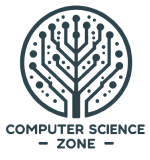Our society is relying more and more on data every day. And with that reliance comes the need for data-driven people with the knowledge and skills necessary to harness high volume data, solve crucial business problems, and offer insights to support effective business decisions. In brief, data analytics/business intelligence is the standard for information processing in today’s techno-centric culture. From commercial to non-profit industries, the use of information technology and the need for statistical analysis continues to expand, and, along with that growth, comes a need for individuals with advanced training. A data scientist/analyst is expected to know everything related to data access, management, manipulation, and analysis. With a deeper understanding and a more effective utilization of data, organizations across the board can then improve performance and secure competitive advantages. Consequently, data scientist has been rated the “Best Job in America for 2016” by Glassdoor.com and the title is so in-demand that you may want to enter this high-opportunity field as soon as possible.
With a Master’s in Analytics, you will not only acquire the analytical skills to analyze big data, but also the specialized technical skillsets needed for industry-specific applications. The programs selected herein share an industry-defined core curriculum and offer a host of flexible course options such as different concentrations and/or graduates certificates. Most importantly, a degree in data science/analytics promises employers that students understand the important logical framework for solving complex problems unique to the data-to-information pipeline. Finally, career prospects for the industry are phenomenal, with major consulting firm McKinsey Global Institute predicting millions of unfilled positions around the world by 2018. For your convenience, we have gathered some of the most cost-effective, prestigious, and flexible online masters in data analytics.
Methodology:
- Affordablity (1/3): the estimated out-of-state tuition per credit hour rate.
- Flexibility-enhancing features (1/3): features including the ability to speed up, slow down, or personalize your learning experience with concentrations. Also lenient transfer policies and life-experience credits.
- Academic Prestige (1/3): our “secret sauce” measure integrating average class size, the percentage of faculty with terminal degrees in their field, and online support service offerings.
1.) Syracuse University

Syracuse University (SU), founded in 1870, is a private, coed institution sitting on over 700 acres in the heart of Syracuse, NY. The campus is a beautiful combination of historic and modern design, full of greenery and art. Over 85% of full-time faculty members have earned a Ph.D. or professional degree and SU’s proprietary Goodman IMPRESS program offers students school credit for things like professional development, volunteering, and certifications. The Whitman undergraduate business college is consistently ranked highly due to its mixture of strong academics and access to extracurriculars. For example, half of undergraduate students study abroad and all students work at least one internship during their time at Whitman. SU is currently ranked #60 Best National University and #44 Best Value Schools by U.S. News & World Report. Syracuse University matriculates about 15,196 undergraduate students, guarantees a student-faculty ratio of 16:1, and 59.1% of classes cater to fewer than 20 students.
Syracuse University’s Online Master of Science in Business Analytics (BusinessAnalytics@Syracuse) designed for data-driven adult professionals who do not want to put their life on hold. The program provides prestige due to the high level of leadership and expertise that the faculty contributes. Furthermore, the program provides affordability due to an unbeatable rate of $150 per credit hour. In addition to core business analytics concepts, students may choose to customize their degree program by selecting from an extensive selection of MBA core and elective courses such as Financial Accounting, Managerial Finance, Marketing Management, Marketing Research, and Strategic Brand Management. The 36-credit-hour curriculum requires 6 core courses (including Data Analysis and decision making, and business analytics) and 18 elective courses. Students also complete 12 credit hours of core application courses in accounting, financial, marketing analytics, and principles of management science.
- Homepage
- Estimated Out-of-state tuition: $150
- Flexibility-enhancing components: N/A
2.) Northeastern University

Northeastern University (NU), established in 1898, is a private, research institution. The school sits on a very urban-contemporary, 73-acre campus in Boston, MA. Accredited by the New England Association of Schools and Colleges–the regional authority on educational quality and institutional effectiveness–NU is currently ranked #39 Best National University by U.S. News & World Report. Northeastern University enrolls approximately 13,700 undergraduate and 6,300 graduate students, offers a student-faculty ratio of 14:1, and 65% of classes cater to fewer than 20 students.
Northeastern University’s Online Masters in Analytics offers a comprehensive curriculum with integrated experiential learning opportunities. Students will gain a deep understanding of the mechanics of working with data along with the capacity to communicate data-driven insights, solve crucial data-driven business problems, and assist with analytics-driven decision making. The program has an approximate completion time of at least 12 months and is prestigious thanks to distinguished faculty who bring extensive, rigorous, and current experience to the classroom. The 45-credit-hour program requires 24 core and 15 elective courses, including an experiential capstone.
- Homepage
- Estimated Out-of-state tuition: $646
- Flexibility-enhancing components: N/A
3.) Pennsylvania State University
![]()
Pennsylvania State University (Penn State), established in 1855, is a public, research-intensive institution. The school occupies an urban, 8,556-acre campus surrounded by mountains in University Park, PA–within the Borough of State College and College Township. Also accredited by the Middle States Commission on Higher Education, Penn State is currently ranked #50 Best National University and #14 Top Public Schools by U.S. News & World Report. Pennsylvania State University registers about 40,742 undergraduate students, promises a student-faculty ratio of 16:1, and 38.9% of classes cater to fewer than 20 students.
Pennsylvania State University’s Master of Professional Studies in Data Analytics is a fully online comprehensive program focusing on big data and database design processes. The program benefits from the prestige of Penn State, which was ranked the #1 institution in the nation for producing the best-prepared, most well-rounded graduates who are most able to succeed once hired, according to a survey by The Wall Street Journal. Students can benefit from the expertise and unique perspectives of faculty who have a broad spectrum of experience and are seasoned in teaching in an online environment. Finally, the program offers flexibility with an option to get either a certificate in analytics or a masters with a business concentration. The 30-credit-hour program requires 9 core and 9 elective courses, including a culminating capstone experience.
- Homepage
- Estimated Out-of-state tuition: $930
- Flexibility-enhancing components: Number of concentrations
4.) Dakota State University

Dakota State University (DSU), founded in 1881, is a public, technology-centric institution. The school sits on a rural, 20-acre campus in Madison, SD–a picturesque and bustling community with a small town feel. Also accredited by The North Central Association of Colleges and Schools, DSU currently ranks #108 Regional Universities Midwest and #32 Top Public Schools by U.S. News & World Report. Dakota State University enrolls about 2,820 undergraduate students, offers a student-faculty ratio of 17:1, and 54.1% of classes cater to fewer than 20 students.
Dakota State University’s Master of Science in Analytics (MSA) offers advanced training in analytics and three optional tracks to help focus and personalize your degree. The program has an estimated completion time of 4 semesters full time (3 courses/per term), which is roughly 24 months. The 30-credit-hour program requires 6 core and 2 elective courses; additionally, 2 required courses in predictive analytics and advanced data mining applications are needed. Electives are divided into three tracks that students can choose from for a more customized experience, including Information Systems, Healthcare Analytics, and General Analytics.
- Homepage
- Estimated Out-of-state tuition: $444
- Flexibility-enhancing components: three tracks
5.) University of Alabama in Huntsville

The University of Alabama in Huntsville (UAH), founded in 1950, is a public, research university hosting 16 high-tech research centers and labs. The school sits on a beautiful and historic, 432-acre campus in located in Huntsville, AL–one of the best college towns in the South. Accredited by the Commission on Colleges of the Southern Association of Colleges and Schools, UAH is currently ranked #197 Best National Universities and #106 Top Public Schools by U.S. News & World Report. The University of Alabama in Huntsville registers roughly 6,507 undergraduate and 1,961 graduate students, offers a student-faculty ratio of 16:1, and 44.5% of classes cater to fewer than 20 students.
University of Alabama Huntsville’s Master of Science in Management Science-Business Analytics (MSMS-BA) promises to teach students how to mine and analyze data, design experiments, apply statistical methods, and design solutions to business problems. The program has an estimated completion time of 1 year, full-time and guarantees prestige because of an AACSB accreditation. Research faculty in the College of Business come from a broad range of backgrounds and provide a great deal of intellectual contributions to the field of analytics. The 30-credit-hour curriculum requires 10 core courses and participants will learn to identify meaningful patterns in business data, understand cause and effect, and help organizations reduce risk and optimize decision-making.
- Homepage
- Estimated Out-of-state tuition: $727
- Flexibility-enhancing components: can be completed in one year
6.) DePaul University

DePaul University (DPU), established in 1898, is a private, co-ed, Roman-Catholic institution. The school sits on a surprisingly verdant, 38-acre campus in the famous Loop of Chicago, IL–the other campus is right in the heart of downtown. Accredited by the Higher Learning Commission–the regional authority on educational quality and institutional effectiveness–DPU is currently ranked #124 Best National University by U.S. News & World Report. DePaul University enrolls approximately 16,000 undergraduate students, offers a student-faculty ratio of 16:1, and 35.3% of classes cater to fewer than 20 students.
DePaul University’s MS in Predictive Analytics will give students the technical and analytic skills to meet the challenges of big data. The program guarantees flexibility with 4 concentrations to choose from such as Computational Methods, Healthcare, Marketing, or Hospitality. The 52-credit-hour program requires 4 core courses where the curriculum emphasizes technical proficiency, practical experience, and advanced skills in data mining. Students must take 12 electives where they can choose from a wide array of courses and either a capstone internship or thesis.
- Homepage
- Estimated Out-of-state tuition: $830
- Flexibility-enhancing components: number of concentrations
7.) Regis University

Regis University (RU) is a co-ed, Jesuit university in New Mexico and was established in 1877. Soon after, it relocated to its present location in Denver, Colorado. Regis University is a community-oriented, military-friendly university recognized for its strong student support services, high-quality education, and prestige in the marketplace. In fact, Regis University’s ranking in the 2017 edition of Best Colleges is Regional Universities West, 23. One of the school’s strong points is its generous transfer-credit policy offering up to 90 credit hours transferable from regionally-accredited universities making it one of the most flexible programs on our list. Students can benefit from a small student-to-faculty ratio of 14:1 and personalized attention with 64.2% of classes having less than 20 students.
Regis University’s online M.S. in Data Science focuses on the fundamentals of data engineering and data analytics – with an emphasis on ethics in data. What sets this program apart is its use of data science and engineering software to analyse data, making it one of the most technical programs on the list. The 36-credit-hour program requires 6 core and 4 elective courses, and it balances fundamentals and theory with industry-relevant applications and projects that will prepare you to solve economic, social, and environmental problems.
- Homepage
- Estimated Out-of-state tuition: $710
- Flexibility-enhancing components: accelerated
8.) Southern New Hampshire University

Southern New Hampshire University (SNHU), established in 1932, is a private, not-for-profit, co-ed university sitting on a 300-acre campus between Manchester and Hooksett, NH–two quaint suburbs about one hour south of Concord, NH. As one of the largest online universities in the United States with over 40 graduate online programs and 34,000 online students, SNHU is known for its innovative educational offerings and strong distance learning options. Accredited by the New England Association of Schools and Colleges–the regional authority on educational quality and institutional effectiveness–SNHU is currently ranked #101 “Best Regional University, North” by U.S. News & World Report. Southern New Hampshire University provides approximately 72% of full-time undergraduate students some form of need-based financial aid, offers a student-faculty ratio of 15:1, and 54.6% of its classes cater to fewer than 20 students.
Southern New Hampshire’s online master’s in data analytics focuses on the strategic and advanced uses of data analytics across all sectors of the global economy. Courses cover data mining, visualization, modeling, optimization and the ethical uses of data. Students can finish the program in as few as 15 months with 2 courses per 10 week term. The program guarantees prestige with a New England Association of Schools And Colleges. Furthermore, the program guarantees affordability with some of the lowest tuition rates in the nation and a 25 percent tuition discount for active-duty service members and their spouses. The 30-credit-hour curriculum requires 8 core and 1 elective courses capstone.
- Homepage
- Estimated Out-of-state tuition: $627
- Flexibility-enhancing components: accelerated courses
9.) Indiana University – Bloomington

Indiana University (IU), started in 1820, is a public research institution and the flagship university of Indiana institution. The school sits on a historic and verdant, 1,937-acre campus in Bloomington. Also accredited by The Higher Learning Commission, IU currently ranks #86 Best National Universities and #53 Best Colleges for Veterans by U.S. News and World Reports. Indiana University registers approximately 38,400 undergraduate students, provides a student-faculty ratio of 17:1, and 35.3% of classes cater to less than than 20 students.
Indiana University’s online M.S. in Data Science from the School of Informatics and Computing provides flexible opportunity for working professionals at a fraction of the cost of many other programs. The program guarantees world-class faculty with strong industry links and excellent career services–all with an approximate completion time of approximately 1.5 years. Several faculty members are international leaders in their fields and hold prestigious awards such as Nobel Prizes, Pulitzer Prizes, Fulbrights, and many more. The 30-credit-hour program requires 4 core and 6 elective courses, providing two distinct paths–a technical path and a decision-maker path–that enable you to customize your program to meet your needs and goals.
- Homepage
- Estimated Out-of-state tuition: $715
- Flexibility-enhancing components: N/A
10.) Oregon State university

Oregon State University (OSU), established in 1868, is a leading public research institution in the northwest, located in Corvallis, OR and the largest university in the state. The school occupies a 422-acre campus in the heart of Willamette Valley–known for its world class wineries. Accredited by the Northwest Commission on Colleges and Universities (NWCCU), OSU is currently ranked #143 Best National Universities and #95 Best College for Veterans by U.S. News & World Report. Oregon State University matriculates about 24,612 undergraduate students, offers a student-faculty ratio of 18:1, and 27.9% of classes cater to fewer than 20 students.
Oregon State University’s online Master of Science in Data Analytics is a cutting-edge program is designed for ambitious professionals who want to develop their statistical or analytical skills, who seek advanced training in the field, or wish to transition to a new functional area. The 45-credit-hour curriculum requires 9 core and 4 elective courses, with an interdisciplinary curriculum that will give strong foundational knowledge in statistics, computer science and mathematics. Finally, the program promises flexibility because students may also pursue an option in health analytics that requires an additional 12 credit hours.
- Homepage
- Estimated Out-of-state tuition: $521
- Flexibility-enhancing components: N/A
